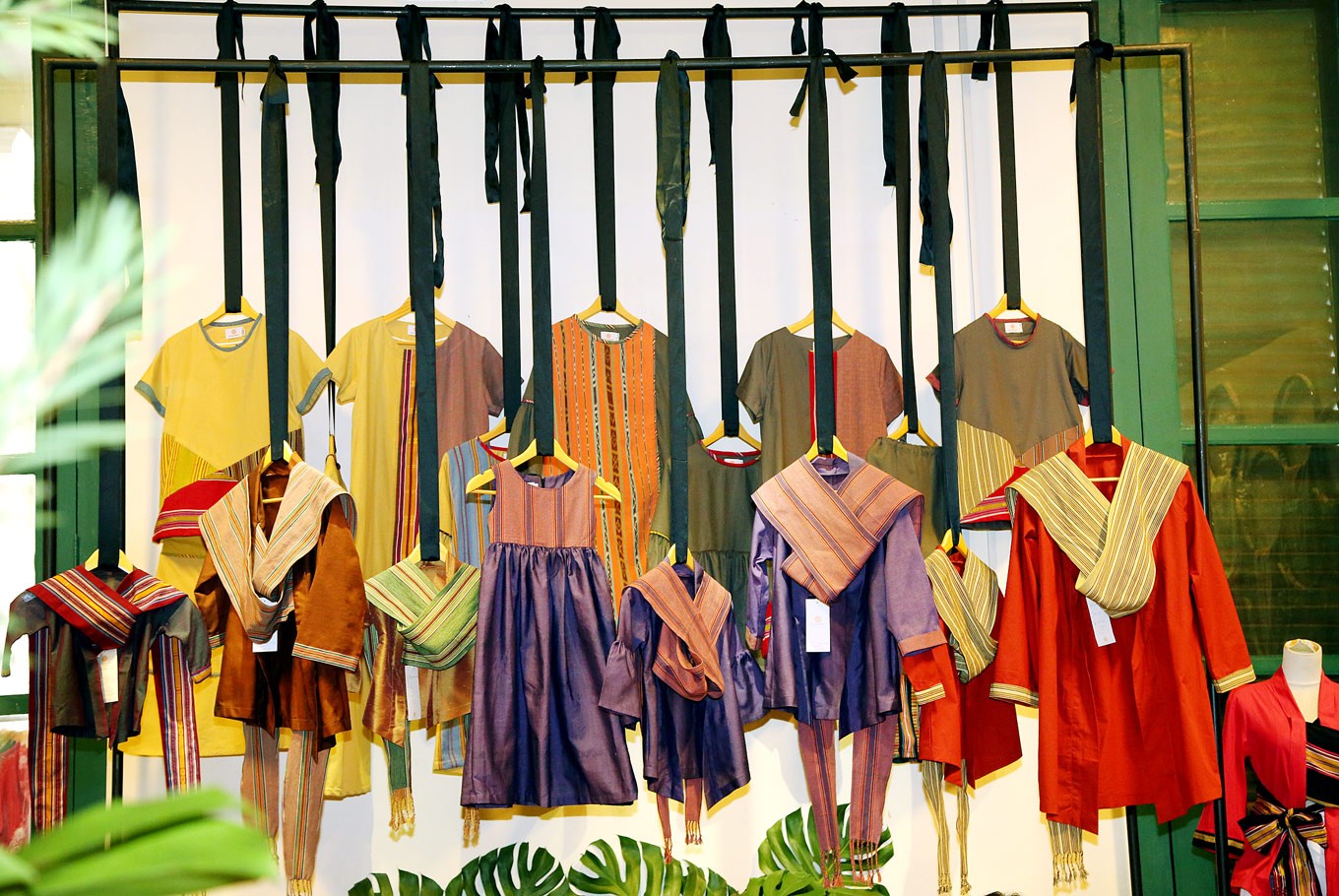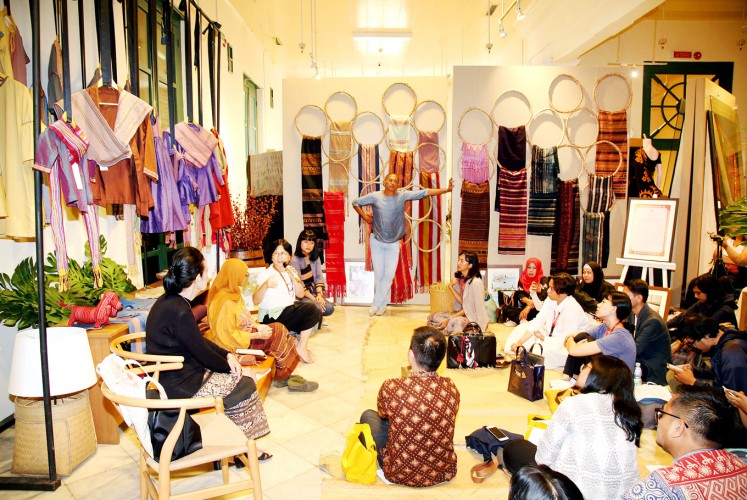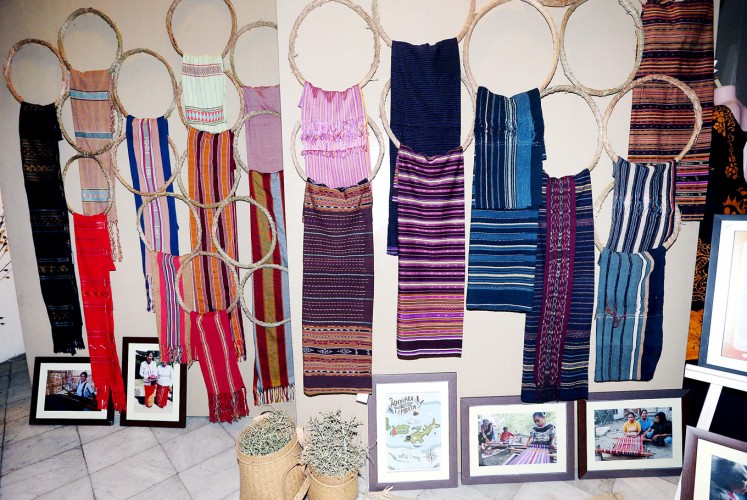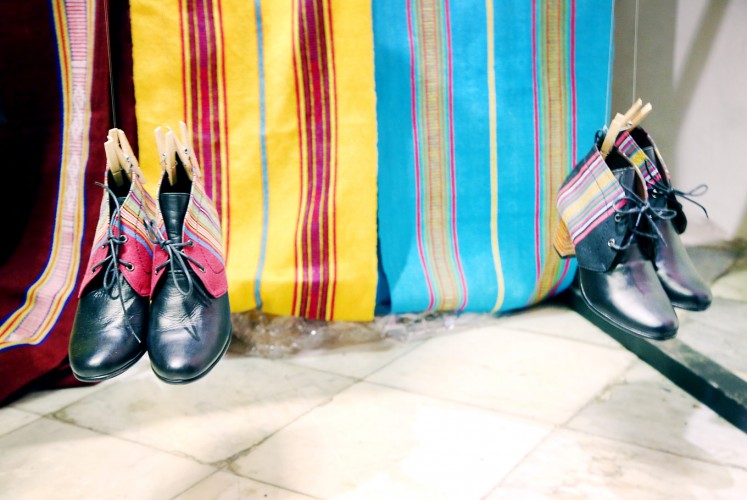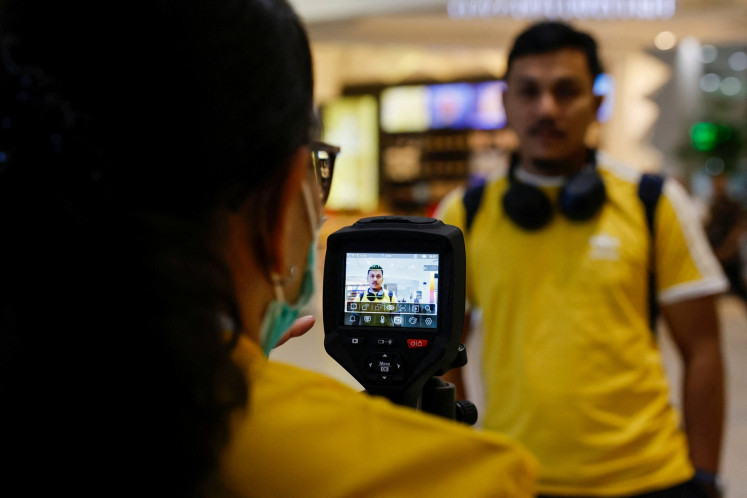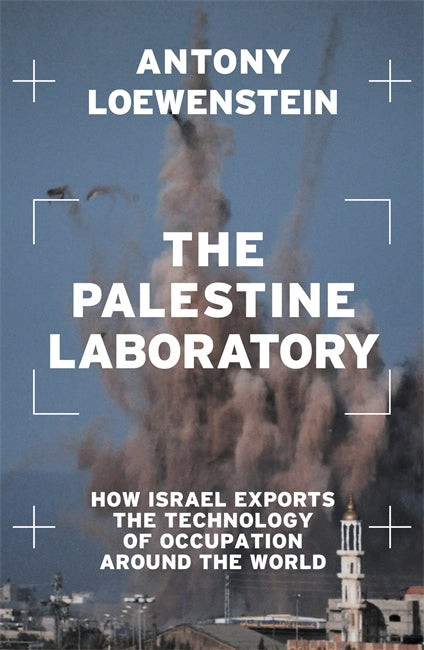Popular Reads
Top Results
Can't find what you're looking for?
View all search resultsPopular Reads
Top Results
Can't find what you're looking for?
View all search resultsCelebrating a community of weavers one thread at a time
Hand-woven tenun, with its stunning designs and intricate techniques, is found across Indonesia, from the islands of Nusa Tenggara to the mountains of Sulawesi.
Change text size
Gift Premium Articles
to Anyone
A community of weavers across Indonesia keeps alive the art of weaving, with its intricate designs and techniques.
When talking about Indonesian textiles, world-renowned batik immediately comes to mind. However, there is more to Indonesian textiles.
Hand-woven tenun, with its stunning designs and intricate techniques, is found across Indonesia, from the islands of Nusa Tenggara to the mountains of Sulawesi.
Toraja Melo, a fashion brand specializing in tenun, has made it its mission to promote and preserve tenun while helping out the community of weavers.
Established in Toraja, South Sulawesi, in 2008, the brand was founded by Diana Iriana Jusuf, a former banker and secretary-general of the National Commission on Violence against Women (Komnas Perempuan).
Dinny, as Diana prefers to be called, said she decided to call it quits in late 2007, feeling burned out by her work and the high number of cases of violence against women she had to handle during her time at the commission.
“My husband is from Toraja and I asked him to build a house there so that I could relax and write about my experience with Indonesian women,” Dinny told The Jakarta Post at the ongoing Asian Textiles Exhibition. The exhibition, which runs until Sept. 9 at the Textile Museum in Tanah Abang, Central Jakarta, is also being held to share the spirit of the Asian Games.
With the house’s construction ongoing in Batutumonga village, Dinny often visited her in-laws in Sa’dan subdistrict, home to many weavers in the area. “In 2008, I noticed that Toraja’s tenun wasn’t selling and the weavers were impoverished, but I still felt tired,” she says.
Tell me more: Toraja Melo founder Diana Iriana Jusuf (third left) speaks on the current state of weavers during the exhibition. (JP/P.J. Leo)The turning point for Dinny’s initiative came when she saw elderly women near the village taking care of babies who looked Chinese.
It turned out the babies were the children of Torajan women who worked in Malaysia and had fallen pregnant and returned home to give birth. The children could not be raised in Malaysia as they had been born out of wedlock and the mothers had returned to Malaysia to work after giving birth.
“I put two and two together, with tenun and the fact that many Torajan women experienced this phenomenon. I thought if they could earn money as weavers without having to work abroad, it would help them a lot.”
She then bought some textiles and took them to Jakarta, where her friend, designer and batik expert Obin encouraged her to continue buying the fabrics to keep the art of weaving alive.
With the success in Toraja, it soon expanded to Mamasa, West Sulawesi, in 2013 to work with the regency’s weavers.
The brand also collaborated with the Association of Women-Headed Households (PEKKA) in 2014 to further expand to include weavers on Adonara and Lembata islands in East Nusa Tenggara.
So far, Toraja Melo works with some 1,000 weavers across the four regions.
PEKKA executive director Nani Zulminarni said her organization did not necessarily organize women weavers, but rather worked with women who had been forced to become heads of their households due to various reasons, such as domestic violence and armed conflict.
Cultural heritage: The Asian Textiles Exhibition also displays tenun from Toraja Melo founder Diana Iriana Jusuf's personal collection. (JP/Dhoni Setiawan)Nani said weaving tenun was an activity in which these women had complete authority over their lives, down to deciding on each thread to be used in the fabric.
“For example, there is a custom in East Nusa Tenggara that women must present a sarong for members of the family whenever there is an event, such as a death or a marriage. This is an arduous task for women who are the head of their households, [...] which is why they advocate for change in their responsibility,” Nani says.
It is precisely these intricacies behind each textile that drove Dinny to preserve Toraja’s tenun, as there were only two elderly women left who knew the weaving techniques by the time Dinny started out.
“The women also did not want to teach the younger generation, as their own offspring worked abroad and they felt that teaching others would create competition,” Dinny said, adding these women only agreed to teach after she started a cooperative in the area.
The rising popularity of tenun has also presented a new problem — it is becoming an industry in which weavers are constantly expected to churn out textiles to sell, which can drive down prices and put pressure on the artisans.
For its part, Dinny said, Toraja Melo could fulfill large orders by negotiating with the customers on time and textile diversity, as each piece is painstakingly woven by the weavers according to their own preferences.
Fashion statement: Tenun handwoven fabrics are turned into beautiful fashion items, from garments to footwear. (JP/P.J. Leo)Dinny said the weavers were paid fairly for their creations, which affected the price of each product sold. “We can’t lower the base price [of the tenun]. So instead of paying the weavers less or cutting production costs, we create smaller items that are less expensive,” she says.
The problem, she added, lay in the value chain, where Indonesia imports the raw materials necessary from countries like China and India.
“I can’t criticize others’ approach in buying tenun as is from the weavers because at least someone is buying it.”
However, she insisted that each Indonesian textile must be preserved for future generations. “If one Indonesian tenun disappears, then we are Indonesians no more,” Dinny said.

